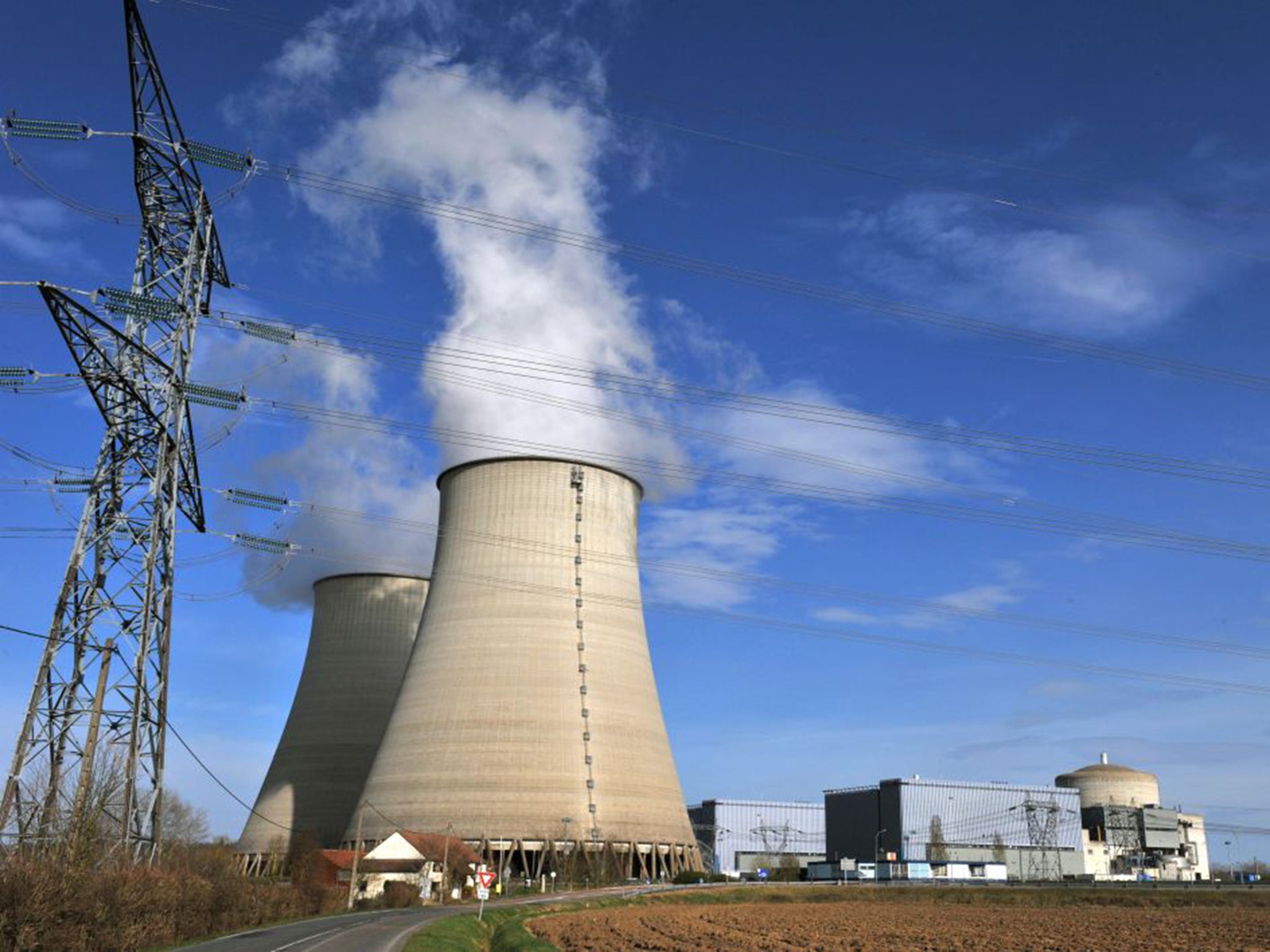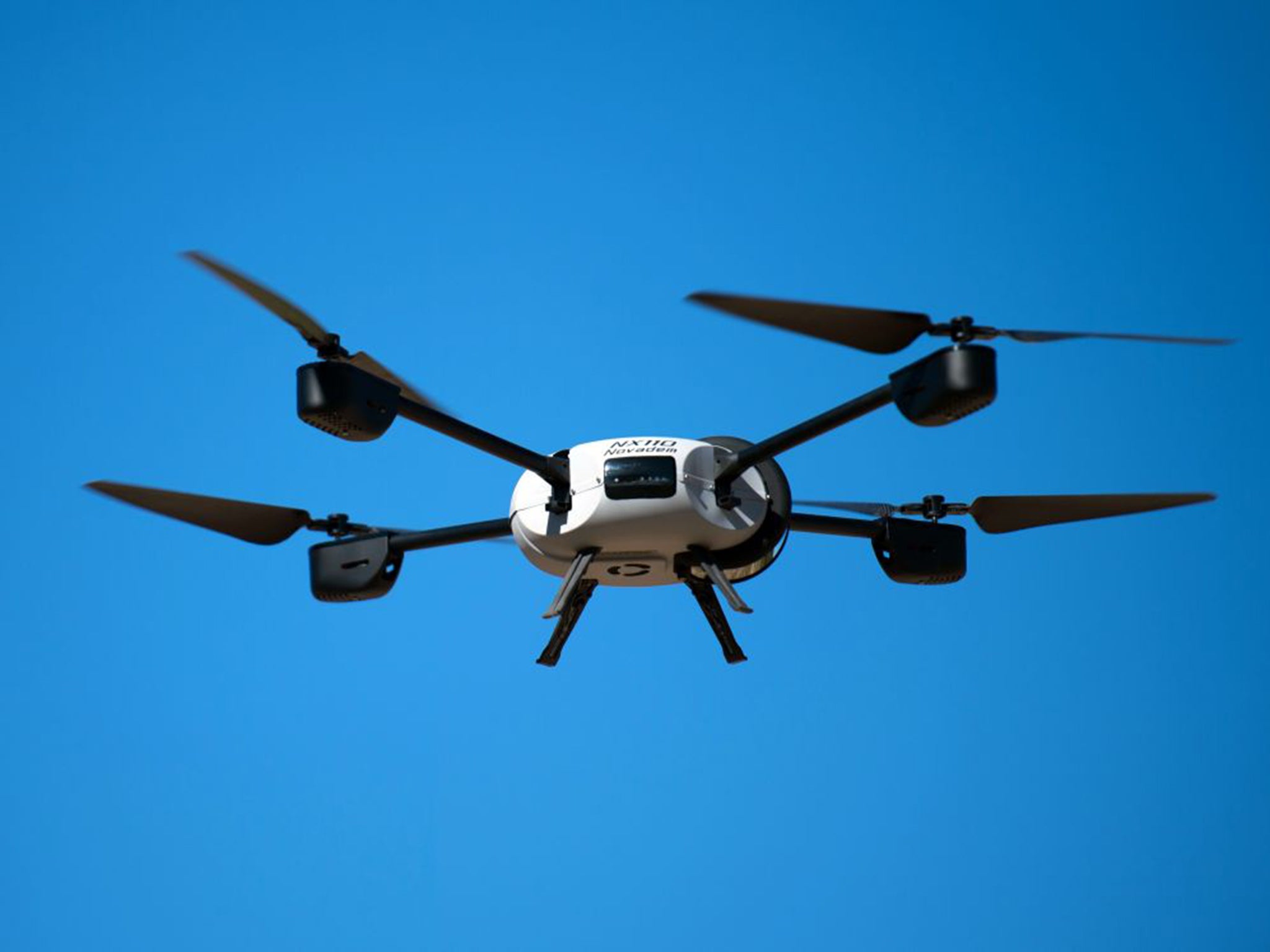Britain's atomic power plants 'could be attacked by drones'
A growing number of mysterious unmanned flights over French nuclear reactors alarms UK experts

Your support helps us to tell the story
From reproductive rights to climate change to Big Tech, The Independent is on the ground when the story is developing. Whether it's investigating the financials of Elon Musk's pro-Trump PAC or producing our latest documentary, 'The A Word', which shines a light on the American women fighting for reproductive rights, we know how important it is to parse out the facts from the messaging.
At such a critical moment in US history, we need reporters on the ground. Your donation allows us to keep sending journalists to speak to both sides of the story.
The Independent is trusted by Americans across the entire political spectrum. And unlike many other quality news outlets, we choose not to lock Americans out of our reporting and analysis with paywalls. We believe quality journalism should be available to everyone, paid for by those who can afford it.
Your support makes all the difference.Nuclear power stations are highly vulnerable to drone attack, according to a confidential report that British ministers are being urged to consider.
Compiled by a British nuclear expert, John Large, the report followed a number of unexplained, but apparently co-ordinated, flights of tiny, unmanned vehicles over French nuclear installations. The grave issues uncovered there, said Mr Large, were equally relevant to the UK's 16 operational reactors, which generate about 18 per cent of the country's electricity.
In public evidence to the French parliament, Mr Large said he set the defences of a standard nuclear power plant against different types of attack that could be launched by drones, such as precisely placed explosive devices and the dropping off of equipment that would aid an insider saboteur.
Existing nuclear power plants, he said, were not designed to counter the threat of "near-cyborg technology". He warned: "In each of the four… attack scenarios that I examined, the plant fared very badly indeed – if these scenarios had been for real, then there would have been the potential for a major radioactive release."
Mr Large's modelling showed that the "flexible access and manoeuvrability of the drones" means that they were able to fly over and twist around physical barriers that "belonged to a different age". Even small, battery-powered drones can lift 10 or more kilograms of cargo, while vehicles available in high street hobbyist shops are "certainly not toys but machines capable of following and discharging intelligent commands".
British officials have looked at Mr Large's evidence and forwarded it to the Office for Nuclear Regulation, but have not requested a copy of the report itself. Mr Large said yesterday: "I would advise the Government to look at this report. There is very good reason to be very concerned about this."

He added that Greenpeace France, which commissioned the work, had been right to keep the details of the review private, but that this would not bar the UK authorities from receiving a copy. Next month, Mr Large – who is neither a member nor a supporter of Greenpeace – will meet with France's nuclear and safety regulators, along with the Ministry of Defence, illustrating how seriously the French are taking his findings.
Two men and one woman were arrested near the Belleville-sur-Loire reactor in the Cher region, south of Paris, last month after using remote-controlled vehicles in a restricted area within 200 metres of the plant. However, they were released after it emerged that they were simply model aircraft enthusiasts operating in an unfortunate location.
Their release leaves a wave of intrusions, mostly at night, still unexplained. These have occurred in restricted airspace over 13 French nuclear plants since early October. On one evening, there were five co-ordinated flyovers at stations located hundreds of miles apart.
Although the vehicles are believed to be commercial and civilian in nature, there are fears that a terrorist group might be using them for surveillance to evaluate the security of France's 19 nuclear sites.
Experts in Germany have warned that the drones could identify weaknesses before sending in an attack helicopter to blow apart thick cement walls. The subsequent meltdown then has the potential to spread radiation up to 180 miles.
Dr David Lowry, a consultant researcher for the World Institute for Nuclear Security in Vienna, said: "My general view is that all nuclear facilities are at risk of malevolent terrorist attack, but [this] is something that most politicians brush under the carpet."
The last nuclear power plant built in the UK was completed in the 1990s, though the Government is planning a new generation of reactors, starting with Hinkley Point C in Somerset. A senior Whitehall source insisted that the Government has increased its focus on nuclear security against "all threats".
The Secretary of State for Energy, Ed Davey, said last night: "It's unlikely that this report would tell us anything that we haven't already looked at, but anyone that has anything that could help us with our number one priority – safety and security – we would like to see it."
Join our commenting forum
Join thought-provoking conversations, follow other Independent readers and see their replies
Comments